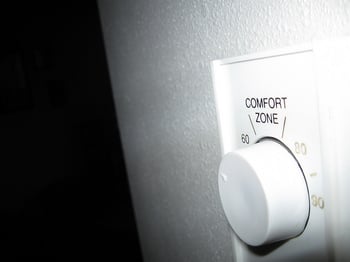 Love those house flipping shows on TV? They make it look easy, don’t they? Even when major problems arise, everything is tidily wrapped up after a couple commercial breaks.
Love those house flipping shows on TV? They make it look easy, don’t they? Even when major problems arise, everything is tidily wrapped up after a couple commercial breaks.
Well, it isn’t easy.
But it helps if the flipper has a few qualities that give them the fortitude and know-how to get in, get the job done and get out. With profit.
What are some of the qualities of successful house flippers?
They Know How To See Potential
Flippers see value in a rundown house that makes the rest of us say, “Yuck.”
Outdated kitchen? No problem. Smells like 45 cats? That can be fixed.
Flippers know the shabbier the house, the cheaper the price. That means more profit for them once they fix it up and sell it.
They’re Good At Math
House flipping is more than remodeling bathrooms and replacing flooring. A lot of it is a numbers game.
It starts with comparing the purchase price of the property to the after repair value — ARV for short, in professional lingo.
Flippers only earn a profit when the ARV is higher than the original purchase price plus repair costs, so accurately predicting repair costs and the ARV can make or break a deal.
Where’s that calculator?
They’re Handy With A Hammer, Or A Crowbar
Successful house flippers tend to be handy around the house. They know that doing as much of the rehab work as possible themselves means more eventual profit for them.
They can install sinks and countertops, do basic plumbing work, maybe re-shingle a roof.
It saves money, but it also saves time. Sometimes a task has to be done at the last minute to keep on schedule. If you can tackle it yourself, you don’t have to wait for a pro to be available.
And when you’re flipping a house, time is money. But...
They Know When To Ask For Help
 Successful flippers know their strengths — and their weaknesses — and aren't afraid to rely on other experts, especially technical workers like plumbers and electricians.
Successful flippers know their strengths — and their weaknesses — and aren't afraid to rely on other experts, especially technical workers like plumbers and electricians.
Just because you’re a wiz at choosing kitchen countertops and backsplashes doesn’t mean you know the structural ins and outs of repairing a roof.
They Know Who The Customer Is
Successful flippers know to design a house for potential buyers — not for themselves.
All of the design elements need to appeal to a broad group of potential buyers.
That means keeping things neutral in color. But it also means knowing the wants and needs of buyers in that particular market.
Buyers in higher-end markets are looking for upgrades, like granite counters, crown molding, high-quality cabinets and built-in wine coolers.
They’re Willing To Take Risks
Flipping a house is not a sure thing. Repairs can cost more than you thought. Unexpected problems can put you behind schedule. Buyers might not like your finished product.
Successful flippers decide the risk is worth the uncertainty and effort.
They Can Duck Out Of Their Comfort Zone
 There’s no comfort zone in house flipping.
There’s no comfort zone in house flipping.
Successful house flippers have to make ridiculously low offers, potentially offending the sellers, to get a good deal. Experts say if you’re not embarrassed about your offer, you’re probably offering too much.
Successful flippers sometimes have to fire a contractor or talk to them about shoddy work. It’s the sort of thing that makes a lot of us uncomfortable.
Successful flippers shrug and move on.
They’re Persistent
Successful house flippers don’t give up.
Not when they lose house after house to higher bidders. Not when the wrong bathroom tile arrives. Again. Not when buyer after buyer says, “No thanks.”
They’re in it till the end.
They Know How To Dispose Of All That Debris
Sound like you?
If so, then you know a lot of messy debris comes out of a flipped house — from old sinks and counters to damaged roofing shingles to musty old carpet.
Professional house flippers know that Bin There Dump That dumpster rentals make disposing of all the refuse easy. Before tear-out day looms, rent a dumpster to haul away the mess.
Perplexed about what size to order? Your local dumpster rental operator will be happy to assist. When the tear-out begins, contact the franchise operator nearest you.
Images: Glass half full, Asking a question, Comfort zone


